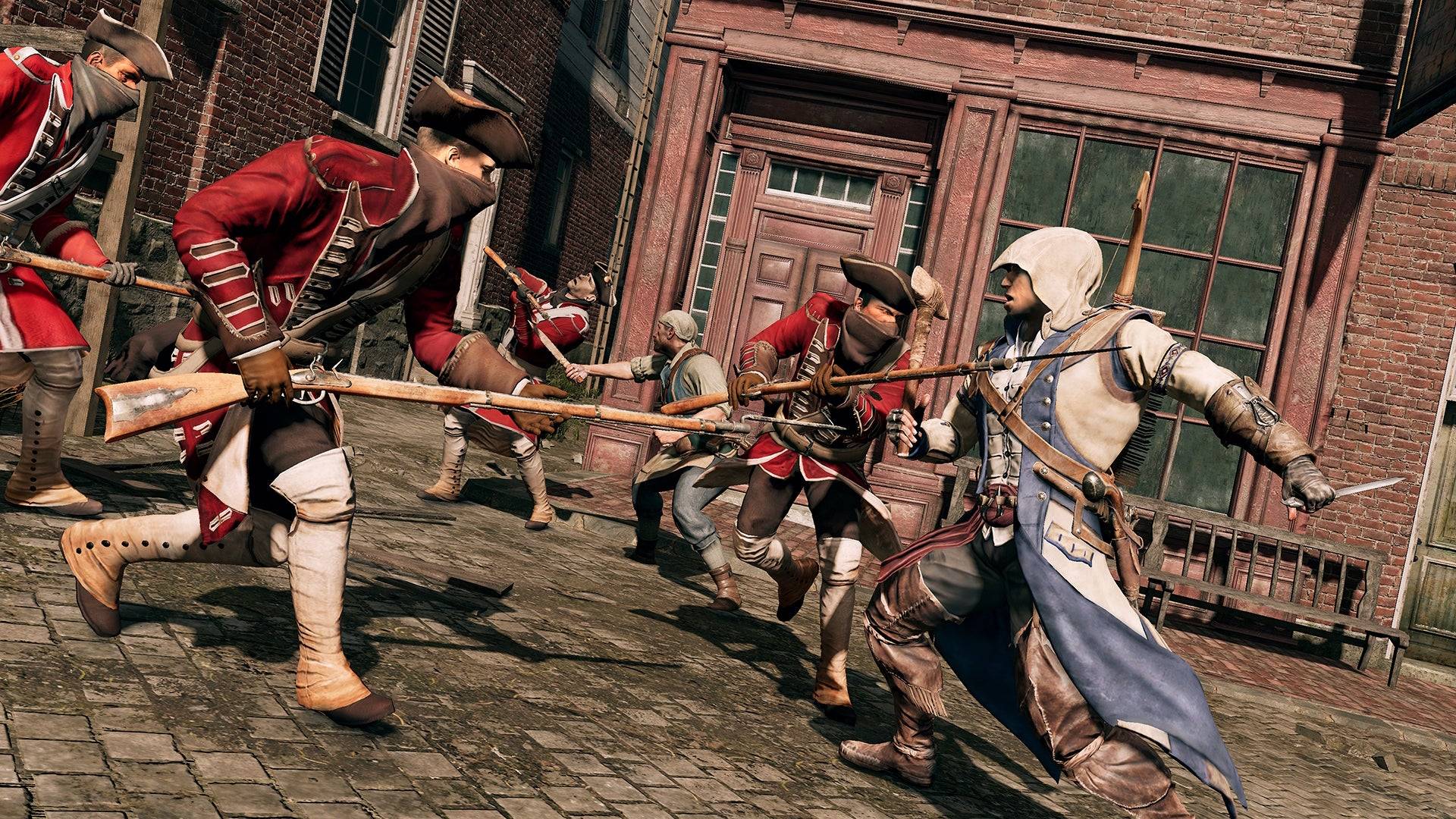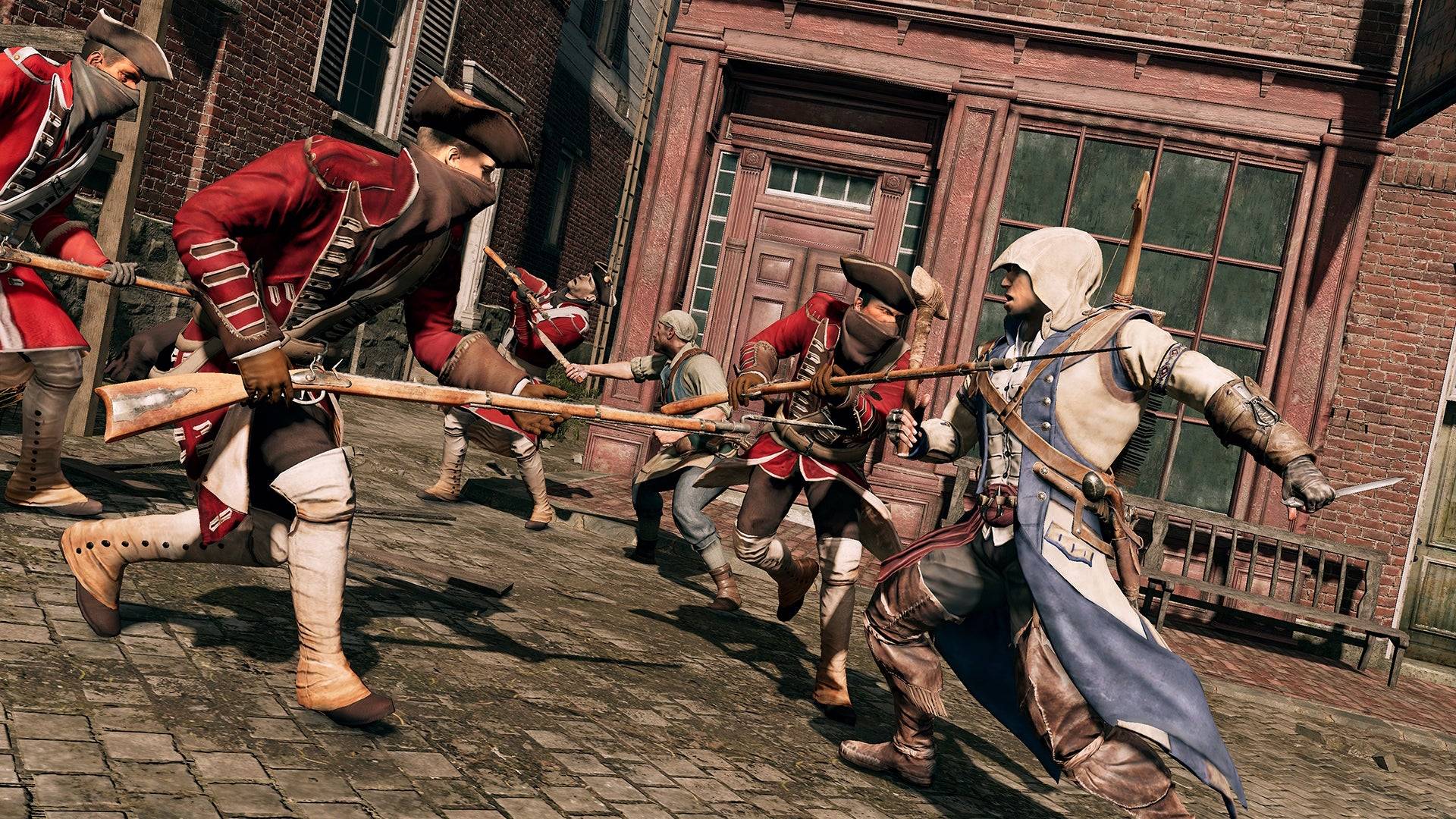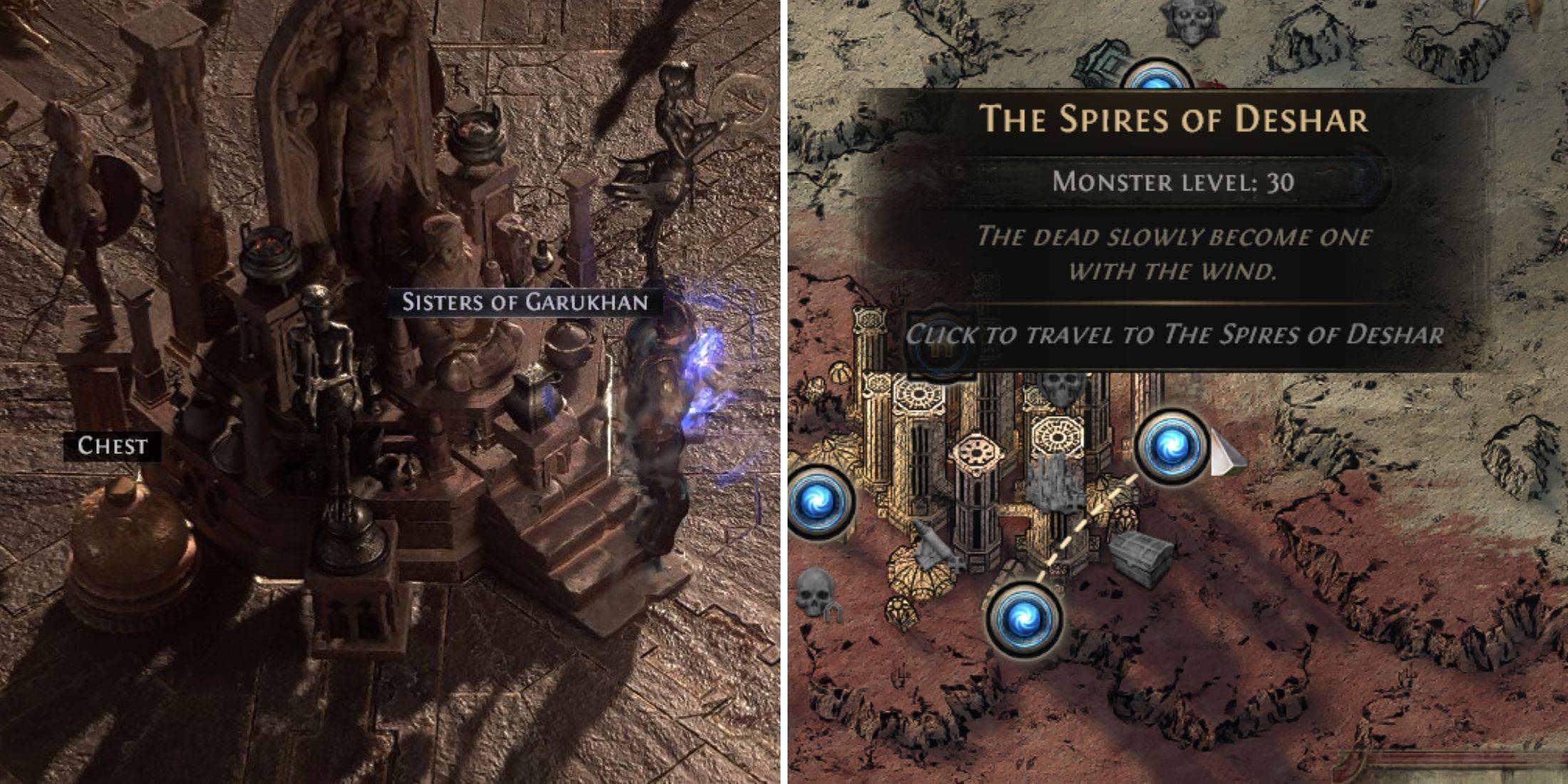Assassin's Creed 2 and 3: The Pinnacle of Series Writing

One of the most iconic moments in the entire Assassin’s Creed series occurs near the beginning of Assassin’s Creed 3, where players follow Haytham Kenway as he assembles his group in the New World. Initially, the game cleverly leads players to believe they are joining a band of assassins. Haytham, wielding a hidden blade and exhibiting the same charisma as the beloved Ezio Auditore, plays the role of a hero, freeing Native Americans from captivity and confronting British redcoats. It's only when he utters the phrase, "May the Father of Understanding guide us," that the twist is revealed: players have been following the Templars, the sworn enemies of the Assassins.
This surprising narrative twist exemplifies the true potential of Assassin’s Creed. The original game introduced a fascinating premise—hunt down, understand, and eliminate targets—but struggled with its storytelling, leaving both protagonist Altaïr and his victims lacking depth. Assassin’s Creed 2 improved upon this by introducing the more dynamic Ezio, yet failed to give the same attention to his adversaries, with characters like Cesare Borgia in the spinoff Assassin’s Creed: Brotherhood feeling underdeveloped. It wasn’t until Assassin’s Creed 3, set against the backdrop of the American Revolution, that Ubisoft fully fleshed out both the hunter and the hunted. This created a seamless flow from setup to payoff, striking a delicate balance between gameplay and narrative that has yet to be matched in subsequent titles.

While the current RPG-centric era of Assassin’s Creed has garnered positive feedback from players and critics alike, a significant portion of the community feels the series is in decline. This sentiment is echoed across numerous articles, YouTube videos, and forum discussions. The reasons cited vary: some criticize the increasingly fantastical elements, such as battling mythological figures like Anubis and Fenrir, while others debate Ubisoft's inclusion of diverse romance options or the use of historical figures like Yasuke, an African samurai, in Assassin’s Creed Shadows. However, I believe the root of the decline lies in the series' shift away from character-driven storytelling, which has become overshadowed by expansive open-world elements.
Over the years, Assassin’s Creed has expanded its original action-adventure formula to include RPG and live service elements, such as dialogue trees, XP-based leveling systems, loot boxes, microtransaction DLC, and gear customization. However, as the games have grown larger, they have often felt emptier, not just in terms of repetitive side missions but also in their storytelling.
Although Assassin’s Creed Odyssey offers more content than Assassin’s Creed 2, much of it can feel stiff and underdeveloped. While player choice should theoretically enhance immersion, in practice, it often dilutes the narrative focus. Longer scripts designed to accommodate multiple scenarios can lack the polish found in games with more linear interactions. The tightly scripted, screenplay-like narratives of the action-adventure era allowed for well-defined characters, unlike the broader game structures that require protagonists to adapt to player whims.
As a result, while Assassin’s Creed Odyssey technically has more content than Assassin’s Creed 2, much of it feels wooden and underbaked, breaking the immersion by highlighting the artificial nature of the game's characters. This contrasts sharply with the Xbox 360/PS3 era, which I believe produced some of the finest writing in gaming, from Ezio’s impassioned speech after defeating Savonarola to Haytham’s tragicomic soliloquy upon his death at the hands of his son, Connor:
"Don't think I have any intention of caressing your cheek and saying I was wrong. I will not weep and wonder what might have been. I'm sure you understand. Still, I'm proud of you in a way. You have shown great conviction. Strength. Courage. All noble qualities. I should have killed you long ago."

The writing in the series has also suffered in other ways. Modern games often simplify the narrative to a clear-cut dichotomy of Assassins as good and Templars as bad, whereas earlier games explored the blurred lines between the two factions. In Assassin’s Creed 3, each defeated Templar challenges Connor's beliefs, prompting players to question their own. William Johnson suggests the Templars could have prevented the Native American genocide, Thomas Hickey dismisses the Assassins’ mission as unrealistic, and Benjamin Church argues that perspective shapes reality, with the British viewing themselves as victims rather than aggressors.
Haytham himself attempts to undermine Connor’s faith in George Washington, asserting that the new nation will be as despotic as the monarchy it replaced—a claim validated when it's revealed that Washington, not Charles Lee, ordered the burning of Connor’s village. By the game's end, players are left with more questions than answers, making the story more compelling.
Reflecting on the franchise’s history, it's clear why "Ezio’s Family" from the Assassin’s Creed 2 soundtrack became the series' official theme. The PS3-era games, particularly Assassin’s Creed 2 and Assassin’s Creed 3, were fundamentally character-driven experiences. The melancholic guitar strings of "Ezio’s Family" were meant to evoke Ezio’s personal loss rather than the game’s setting. While I appreciate the expansive worldbuilding and graphical advancements of the current Assassin’s Creed games, I hope the series will one day return to its roots, delivering focused, character-centric stories that originally captivated fans. However, in an industry increasingly focused on expansive sandboxes and live service models, such a return might not align with current business strategies.
-
 EAGLE Security UNLIMITEDEAGLE Security UNLIMITED delivers essential protection for your smartphone, keeping it secure from unauthorized tapping. With the Mod version available at no cost, users can easily defend their devices against potential threats. Stay protected in a
EAGLE Security UNLIMITEDEAGLE Security UNLIMITED delivers essential protection for your smartphone, keeping it secure from unauthorized tapping. With the Mod version available at no cost, users can easily defend their devices against potential threats. Stay protected in a -
 FamilyGo: Locate Your PhoneFamilyGo: Locate Your Phone is a GPS tracking application designed to improve family communication and safety. You can conveniently monitor the real-time locations of your loved ones on an interactive map. Creating or joining a family group is simpl
FamilyGo: Locate Your PhoneFamilyGo: Locate Your Phone is a GPS tracking application designed to improve family communication and safety. You can conveniently monitor the real-time locations of your loved ones on an interactive map. Creating or joining a family group is simpl -
 NSIA NOVAPLUS APP'Experience banking in the palm of your hand with the NSIA NOVAPLUS APP, your complete banking solution. Enjoy secure access to check balances, track transactions, make transfers, and pay bills effortlessly. Take advantage of features like quick bill
NSIA NOVAPLUS APP'Experience banking in the palm of your hand with the NSIA NOVAPLUS APP, your complete banking solution. Enjoy secure access to check balances, track transactions, make transfers, and pay bills effortlessly. Take advantage of features like quick bill -
 Greek Gods - Slot Casino GameStep into the world of ancient Greek mythology with Greek Gods – Slot Casino Game, where you can ascend to Mount Olympus and join gods like Zeus. Boasting 243 ways to win, feel the excitement as Zeus strikes the reels with Scatter lightning, grantin
Greek Gods - Slot Casino GameStep into the world of ancient Greek mythology with Greek Gods – Slot Casino Game, where you can ascend to Mount Olympus and join gods like Zeus. Boasting 243 ways to win, feel the excitement as Zeus strikes the reels with Scatter lightning, grantin -
 AFLW Official AppReady for the AFLW comeback? The official AFLW app is your all-access pass. Stream every 2023 NAB AFL Women's Competition match live, including the Grand Final. Keep up with team news, player videos and profiles, and dive into live scores and stats
AFLW Official AppReady for the AFLW comeback? The official AFLW app is your all-access pass. Stream every 2023 NAB AFL Women's Competition match live, including the Grand Final. Keep up with team news, player videos and profiles, and dive into live scores and stats -
 PHOTON GAME 2023Get ready to explore limitless gaming fun with PHOTON GAME 2023! This cutting-edge app brings a huge variety of games perfect for every player’s preference. Whether you enjoy mind-bending puzzles, clever strategy, or thrilling action adventures, you
PHOTON GAME 2023Get ready to explore limitless gaming fun with PHOTON GAME 2023! This cutting-edge app brings a huge variety of games perfect for every player’s preference. Whether you enjoy mind-bending puzzles, clever strategy, or thrilling action adventures, you
-
 Marvel Rivals Season 1 Release Date Revealed
Marvel Rivals Season 1 Release Date Revealed
-
 Honkai: Star Rail Update Unveils Penacony Conclusion
Honkai: Star Rail Update Unveils Penacony Conclusion
-
 Announcing Path of Exile 2: Guide to Sisters of Garukhan Expansion
Announcing Path of Exile 2: Guide to Sisters of Garukhan Expansion
-
 Sonic Racing: CrossWorlds Characters and Tracks Revealed for Upcoming Closed Network Test
Sonic Racing: CrossWorlds Characters and Tracks Revealed for Upcoming Closed Network Test
-
 Optimal Free Fire Settings for Headshot Mastery
Optimal Free Fire Settings for Headshot Mastery